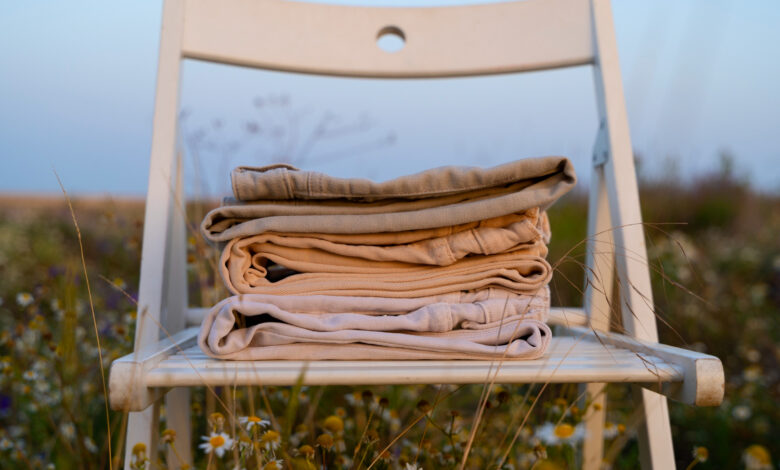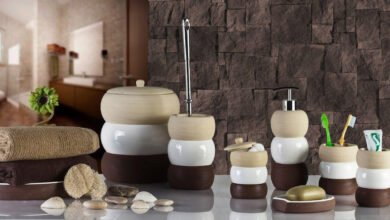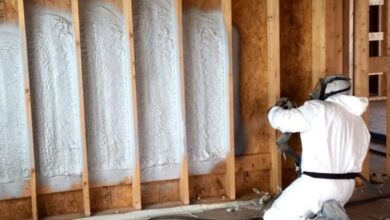What To Look for an Eco-Friendly Linen Products?

In a time when ecological consciousness is growing, customers are looking for more sustainable options in all areas of their lives, especially the goods they buy. Not only is linen a classic and adaptable fabric but it’s also become increasingly common due to its environmental benefits. That being said, there are differences amongst linen products in terms of sustainability. This article will discuss what to search for in eco-friendly linen products so that buyers may make wise decisions that protect the environment. Make sure to buy such linens from a reliable manufacturer such as T & A textiles household linen manufacturers.
Organic Farming Practices:
The adoption of organic farming procedures for the growing of flax, the plant through which linen fibres are obtained, serves as one of the important indicators of green linen products. Synthetic fertilisers and pesticides are frequently used in traditional agricultural practices, which may be harmful to both the natural world and human health. Organic farming, on the other hand, stays away from harmful chemicals and supports the natural world, healthy soil, and sustainable farming methods. Look for qualifications like Global Organic Textile Standard (GOTS). Which guarantees that all production processes follow stringent organic and ethical guidelines when looking for eco-friendly linen products.
Water Efficiency:
Compared to other crops like cotton, linen is known for its capacity to flourish in a variety of climates while using less water. Water usage remains variable during the production process, though. Customers who care about the environment should look for linen products from producers who value water efficiency. It can entail following water conservation guidelines, implementing water recycling infrastructure, and using responsible management of water techniques. Moreover, tests for dangerous materials, especially those connected to water quality, may guarantee that the linen product has been certified by an organisation like OEKO-TEX® Standard 100.
Energy Use And Renewable Energy Sources:
There are several steps involved in the making of linen, from farming to processing and production. Manufacturers who emphasise energy efficiency and should ideally make use of renewable energy sources ought to offer sustainable linen goods. Seek out businesses that have cut their carbon footprint by implementing eco-friendly policies and equipment. A dedication to less energy use and moral production practices may be indicated by licences such as Fair Trade or Carbon Trust.
Considerations For Biodegradability And End-Of-Life:
Because linen is a natural fibre and naturally biodegradable, it is a better option than synthetic fabrics. Nevertheless, linen fabrics’ biodegradability may be impacted by the finishing techniques used on them. Eco-friendly linen products must preferably employ natural, biodegradable dyes and endure as little chemical processing as possible. Take into account the product’s packaging as well; choose companies who use recyclable or biodegradable materials to reduce the environmental impact when the product reaches the final phase of its life cycle.
Fair Labour Practices:
Sustainability includes social and ethical issues in addition to environmental ones. It is important to take into account the labour policies of the manufacturing organisations while selecting eco-friendly linen items. Seek out companies who have committed to fair labour standards, making sure workers have secure places of employment, fair compensation, and ethical treatment. Membership in groups like the Ethical Trading Initiative or accreditation like Fair Trade can serve as markers of a brand’s social responsibility.
Transparency And Traceability:
A reliable source for environmentally friendly linen products is open and honest about its procurement and supply chain procedures. Businesses that can connect their linen to certain farms or areas show that they value accountability. Customers are better equipped to decide how their buying decisions will affect the environment and society when supply chains are transparent. Seek out companies which provide comprehensive details regarding the supply chain of their goods, from the procurement of raw materials to production and delivery.
Durability And Longevity:
A crucial component of sustainability is the product’s durability. Durability ought to be considered during the design and production of eco-friendly linen goods. Not only are premium linen textiles luxurious, but they also last longer. Meaning fewer replacements are needed and less of an overall adverse effect on the environment. Give top priority to items that are well-made and have fine stitching and finishing to make sure they last a long time.
Conclusion
It is critical to carefully consider our options when making purchases, especially for relatively straightforward commodities like linen products, as customers prioritise sustainability more and more. People may arrive at decisions. That are in line with their ecological values by taking into account variables including sustainable agriculture, water conservation, energy use, biodegradability, fair labour practices, openness, durability, and renewable energy efforts. In the end, the market for environmentally friendly linen items pushes producers to use more sustainable techniques. Which helps to create a more accountable and durable sector of the economy.





